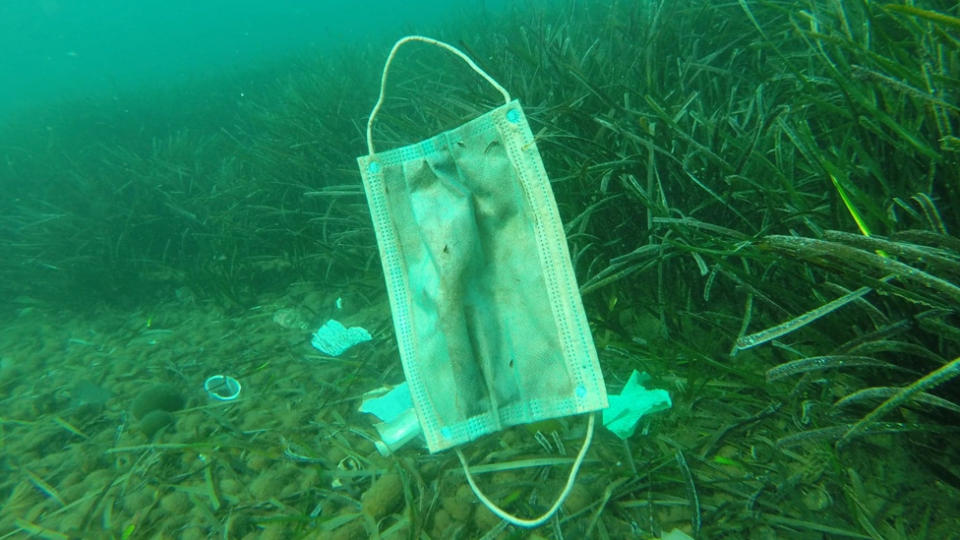The disturbing impact coronavirus is having on our environment
A video released by a French environmental group has revealed the devastating environmental effects of coronavirus.
An alarming amount of personal protective equipment (PPE) has been found floating in the water around the French coast for a month now, according to Operation Mer Propre - a French non-profit that fights ocean pollution.
Founder Laurent Lombard said he’s never seen so many masks and gloves littering the ocean before and has shared videos and images of the mass amounts the group has cleaned up.

"There are two reasons for us seeing these masks in the sea. It's of course the usage, since there weren't any before, and now we're using them.
“And then there's the incivility. If people weren't throwing masks on the street, we wouldn't find them in the sea, since 80 per cent of the trash that we see in the sea comes from the land,” he said.
“You see, when it rains the trash is taken away by rainwaters and they end up in the sea through rivers and valleys,” he explained.
For now, PPE accounts for less than one per cent of the whopping 3 tonnes of trash collected underwater by volunteers since the group started last year.
But Mr Lombard said the problem could get worse.
OceansAsia.org posted a video in February showing “masses of surgical masks” on the shores of the Soko Islands in Hong kong, demonstrating that the problem spreads much further than Europe.

“Due to the current COVID-19 coronavirus, the general population (In Hong Kong) have all taken the precaution to wear surgical masks.
“When you suddenly have a population of seven million people wearing one to two masks per day the amount of trash generated is going to be substantial,” the website explained.
OceanAsia.org said that masks were ideal items to wash up on the shore because they’re lightweight and easy for the wind to blow into the water.
“When an item enters the water, its shape and weight play a huge role in where it will end up.
“In the case of masks they likely ended up being blown into the water, but after entering the ocean would largely be affected by current and tidal action with wind only affecting the waters surface.”
Operation Mer Propre has documented finding mass amounts of other items including rubber gloves and even bottles of sanitiser in the Mediterranean Sea.
'Had to do something': Sad theory after man finds 20 dead turtles on beach
'This is horrible': Video shows riverbank littered with dead fish
‘More masks than jellyfish in the Sea’
About 129 billion face masks and 65 billion gloves are being used each month, according to a recent study published in the Environment, Science and Technology journal.

Government leaders in Europe have taken notice and are calling on the public to dispose of their used PPE properly.
France’s environment ministry, for example, increased fines for littering from 68 euros (AU $100) up to 750 (AU $1,200).
"Yes, it's good, but the law needs to be enforced, and there should really be policies on giving out fines in place,” Mr Lombard said.
The passionate environmentalist said it comes down to common sense that people should throw their masks in the rubbish, instead of causing a larger problem for the ocean.
“Soon there may be more masks than jellyfish in the Mediterranean Sea,” says Mr Lombard.
with Reuters
Do you have a story tip? Email: newsroomau@yahoonews.com.
You can also follow us on Facebook, Instagram and Twitter and download the Yahoo News app from the App Store or Google Play.




